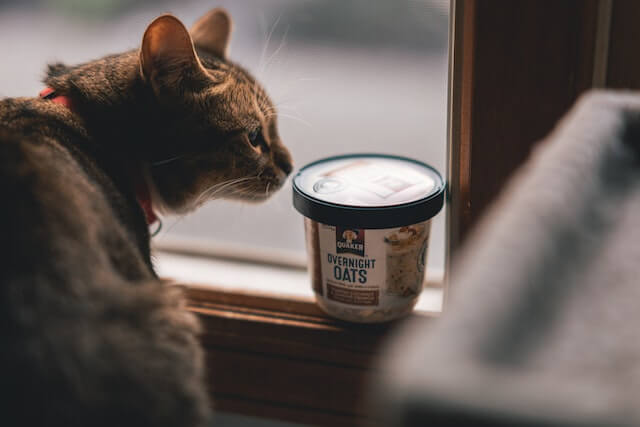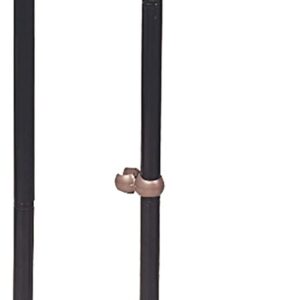The Dish on Pet Nutrition: 11 Essential Tips for a Healthy and Happy Pet

As pet owners, we want to give our furry friends the best possible care, and one way to do that is by providing them with proper nutrition. But with so many options available, it can be difficult to know what to feed our pets.
Proper nutrition is vital to your pet’s health and well-being. A balanced diet provides the necessary nutrients, energy, and hydration for your pet’s body to function correctly. However, with so many pet food options on the market, it can be challenging to know which one to choose.
In this article, we’ll cover 11 essential tips for pet nutrition, including the importance of reading pet food labels, understanding your pet’s nutritional needs, and how to introduce new foods to your pet’s diet. By following these tips, you can ensure that your pet is getting the nutrients they need to thrive and live a happy and healthy life.
Expert tips about pet nutrition
1) Choose a high-quality pet food that meets your pet’s nutritional needs
One of the most important things to consider when selecting pet food is the quality of the ingredients. Look for brands that use high-quality ingredients and have a good reputation. Avoid foods with fillers, by-products, and artificial preservatives.
When choosing pet food, consider your pet’s age, breed, and activity level. Puppies and kittens, for example, have different nutritional needs than adult pets. Make sure that the food you choose meets your pet’s specific nutritional requirements.
2) Read the ingredients list and nutritional information carefully
The ingredients list and nutritional information on pet food packaging can tell you a lot about the quality of the food. Avoid foods that contain fillers, by-products, and artificial preservatives. Look for foods that list high-quality ingredients like real meat, fruits, and vegetables.
The nutritional information on the packaging can tell you about the levels of protein, carbohydrates, fats, vitamins, and minerals in the food. Make sure the food you choose has a balanced nutritional profile and meets your pet’s specific nutritional needs.
3) Talk to your veterinarian about any special dietary requirements
If your pet has any special dietary requirements, such as food allergies or medical conditions, it is important to talk to your veterinarian. They can recommend specific foods or diets that meet your pet’s unique needs.
For example, if your pet has a food allergy, your veterinarian may recommend a hypoallergenic diet that avoids common allergens. If your pet has a medical condition like kidney disease, your veterinarian may recommend a special diet that helps manage the condition.
4) Avoid feeding your pet table scraps
Feeding your pet table scraps may seem like a harmless treat, but it can actually lead to health problems. Table scraps are often high in fat and calories, which can lead to obesity and other health issues. They can also cause digestive problems like diarrhea and vomiting.

Instead of feeding your pet table scraps, offer them healthy treats specifically made for pets. You can also use small pieces of their regular food as a treat during training.
5) Offer your pet a balanced diet
A balanced diet for pets includes protein, carbohydrates, fats, vitamins, and minerals. Protein is important for building and repairing muscle, while carbohydrates provide energy. Fats are essential for healthy skin and coat, and vitamins and minerals help support overall health.
Make sure your pet’s diet includes a variety of high-quality protein sources like chicken, beef, and fish. Offer complex carbohydrates like brown rice, sweet potato, and whole grains. Include healthy fats like omega-3 fatty acids from fish oil. Provide a variety of fruits and vegetables to ensure your pet gets all the necessary vitamins and minerals.
6) Provide fresh water at all times
Water is essential for all living creatures, and pets are no exception. Make sure your pet has access to fresh water at all times, and check their water bowl frequently to make sure it is clean and full.
Dehydration can lead to serious health problems in pets, so make sure your pet is drinking enough water. If you notice that your pet is not drinking enough, talk to your veterinarian.
7) Don’t overfeed your pet
Overfeeding is a common problem in pets, and it can lead to obesity, which is associated with a variety of health problems like joint pain, heart disease, and diabetes. Follow the feeding guidelines on the food package or as directed by your veterinarian.
Offer your pet the recommended portion sizes for their age, breed, and activity level. If you are unsure how much to feed your pet, talk to your veterinarian.
It is also important to measure out your pet’s food rather than guessing or free-feeding. Measuring out your pet’s food can help prevent overfeeding and ensure they are getting the right amount of nutrients.
8) Consider adding supplements to your pet’s diet
Supplements can help support your pet’s overall health and address specific health concerns. For example, omega-3 fatty acid supplements can help promote healthy skin and coat, while joint supplements can help support joint health.

Talk to your veterinarian about what supplements may be appropriate for your pet. Make sure to choose high-quality supplements and follow the recommended dosage.
9) Be cautious about homemade diets
While homemade diets may seem like a healthy and natural option for pets, they can actually be risky. Homemade diets may not provide all the necessary nutrients for pets, and can lead to nutritional deficiencies and health problems.
Also Read: 21 Dangerous Foods Your Dog Should Never Eat
If you want to feed your pet a homemade diet, talk to your veterinarian or a veterinary nutritionist to ensure it is balanced and meets your pet’s nutritional needs.
10) Pay attention to your pet’s body condition
Your pet’s body condition can tell you a lot about their overall health and whether they are getting the right nutrition. Look for signs of obesity or malnourishment, such as a protruding belly or visible ribs.
If you notice changes in your pet’s body condition, talk to your veterinarian. They can help you adjust your pet’s diet or recommend specific foods to help address any issues.
11) Monitor your pet’s health
Regular check-ups with your veterinarian are important for monitoring your pet’s overall health and ensuring they are getting the right nutrition. Your veterinarian can perform routine blood work and physical exams to catch any health problems early.
If you notice any changes in your pet’s behavior or health, such as decreased appetite, vomiting, or lethargy, make an appointment with your veterinarian as soon as possible.
Conclusion
Proper nutrition is essential for your pet’s overall health and well-being. By choosing high-quality pet food, reading ingredient lists and nutritional information carefully, and consulting with your veterinarian, you can ensure your pet is getting the right nutrition for their unique needs. Additionally, providing fresh water, offering a balanced diet, avoiding overfeeding, and monitoring your pet’s health can help promote a healthy and happy pet.
Disclaimer: This article may contain affiliate links to products. All product details reflect the price and availability at the time of publication. We may receive a commission for purchases made through these links.



